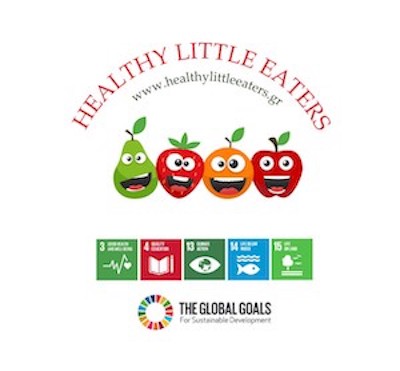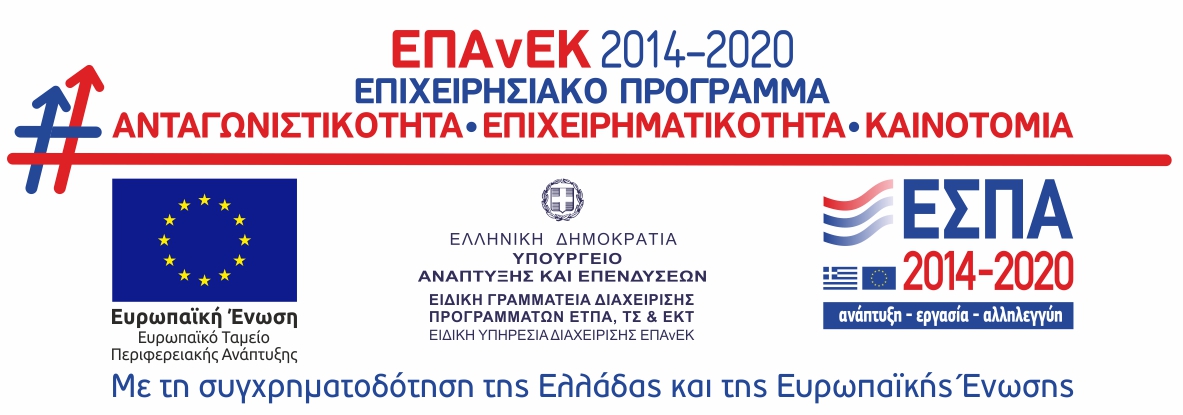The beginning
“Healthy Little Eaters” was set in motion in 2014 at “Spyridoula Kokkali” Foreign Language School in Acharavi, Corfu, as a project of healthy eating, compost-making and organic farming. It aimed at reversing the status quo in the destructive dietary habits of the students. It started out by simply rewarding the students who consumed healthy snacks during breaks, went on with the production of compost from the peels of the vegetables and fruit they consumed, the construction of a greenhouse inside the Foreign Language School and the creation of a seed bank. The project evolved even further when it broke away from the confines of the Language School and encouraged members of the local community to participate in a variety of ways. As a result, the activities diversified, including training seminars from dieticians and doctors, visits to local fresh food industries, guided tours in greenhouses, trips to Natura-designated areas, as well as the creation of social messages which were very well received by social media users.
The philosophy of the project
The main hub of the movement is the development of the participants’ naturalistic intelligence, which is the ninth and most recent type, added to Howard Gardner’s Theory of Multiple Intelligences in 1996.
Undeniably, nature offers experiential education, which awakens learners and arouses their senses, thus setting a solid foundation so they can become balanced, sensitized, active citizens of the future, who will love and protect their homeland.
The arousal of the children’s senses through their contact with the natural environment causes a domino-effect of benefits, since they experience the differences between what is natural and artificial, real and fake, healthy and unhealthy. They learn how to love and respect life itself as well as themselves. It teaches them how to live in total harmony, by equipping them with life skills that will support them throughout their life and afford them leader status in the 21st century.
Richard Louv introduced the term “Nature Deficit Disorder” to describe the psychological, mental and emotional impact of alienating children from nature. The main symptoms of this disorder include anxiety neurosis, attention deficit, behavioral problems, depression, phobias, hyperactivity, obesity and vitamin D deficit. The role of the Healthy Little Eaters Movement is to redefine and reinforce children’s relation with nature in an attempt to reverse part of this impact.
Additionally, by being part of the Healthy Little Eaters, children learn how to use technology in a rational manner, as a tool that retrieves information from safe sites indicated by teachers of Foreign Language School.

Objectives of the project
The movement is expected to reach more than 20,000 people. We muster all our educational tools, experiential learning, arts, research, creativity and above all the enjoyment, and couple them with the talents, the initiative and the insight of the learners. We, the language school owners and teachers, have always blazed trails in education. Therefore, we are undertaking the ambitious task of offering the young people of our country a vision and the motivation so they can take action in harmony with nature, rekindling the flame of life itself. Using our mother tongue as well as the languages we teach, we hope to get our powerful message across to other peoples, too.
Projects under the Healthy Little Eaters’ umbrella.
Seminars by dieticians and doctors, concerning the benefits of healthy eating
- Visits to local fresh food industries and organic products.
- Educational field trips to Natura-designated areas, plant nurseries and organic farms.
- Projects: writing books with recipes for healthy meals, poems or short stories related to nature
- Creation of social messages concerning the environment, in the form of photographs or videos accompanied by text
- Setting up an amateur greenhouse or seed bank. This will involve research into the features, properties and care of the plants.
- Recycling of fruit / vegetable leftovers and production of compost in home compost machines, while at the same time rewarding the students.
- Designing and performing Powerpoint presentations of the research and the students’ projects.
- Exchange of ideas, opinions and experiences among the participating Foreign Language Schools and their students via Skype.
- Exchange of ideas, opinions and experiences among the participating Foreign Language Schools and their students in the actual location of the Foreign Language School
- Join field trips in the areas where the participating Foreign Language Schools are located with the aim of exchanging experiences.
- Pahnellenic projects such as the celebration of the World Food Day (16/10 every year).
- Pahnellenic writing and photo contests.
- The writing of a recipe book that travels all around Greece and is filled with recipes from all members.











